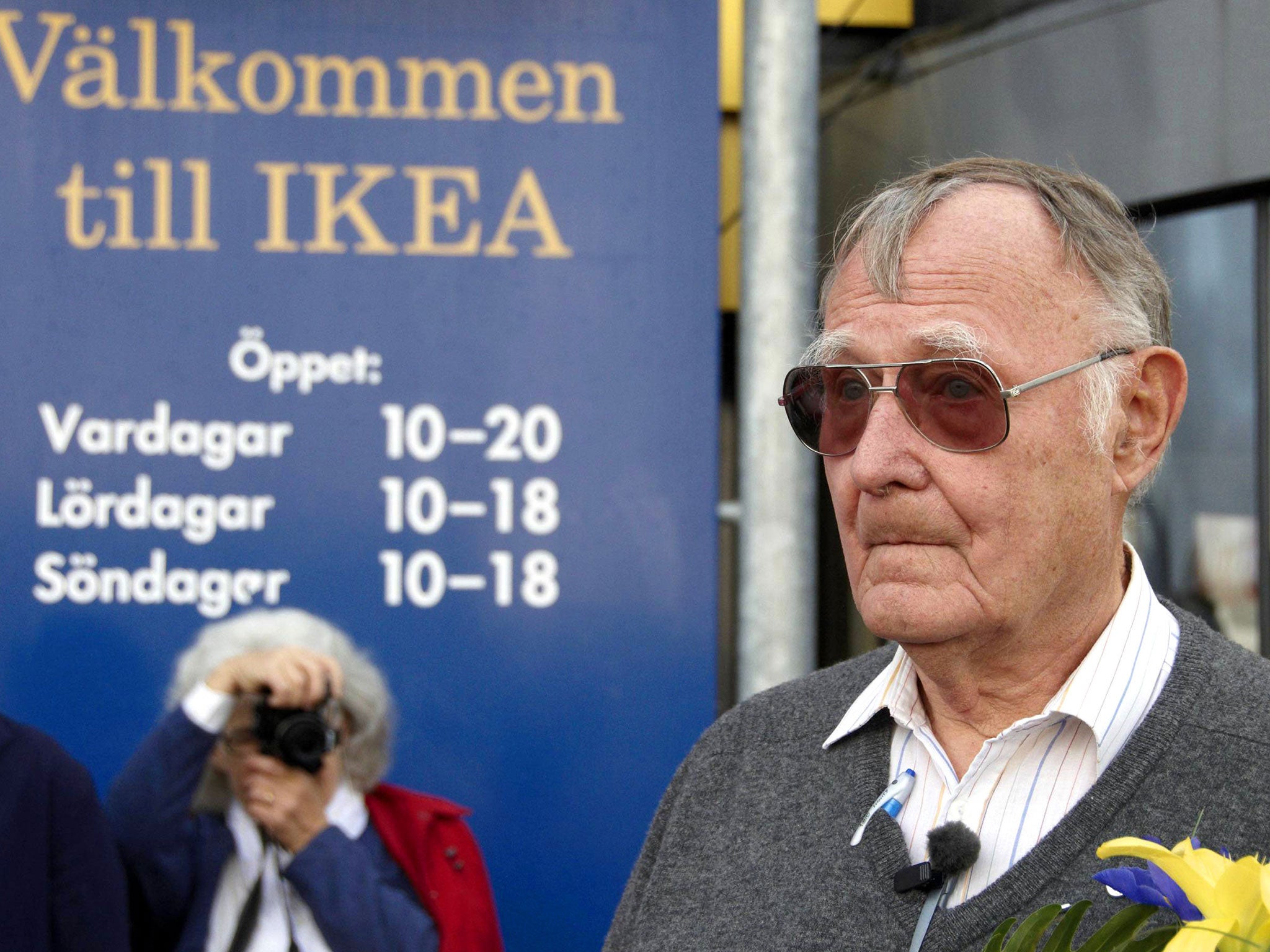Ikea billionaire founder Ingvar Kamprad says he buys second hand clothes to save money
Kamprad, who turns 90 in March, is so thrifty he stocks his closet with second-hand clothes

He may be the billionaire founder of IKEA, but Ingvar Kamprad has revealed he buys his clothes at flea markets to save money, according to a documentary on Swedish television.
Kamprad, who turns 90 in March, is so thrifty he stocks his closet with second-hand clothes.
He claims this attitude helped IKEA to become one of the world’s top brands.
“I don’t think I’m wearing anything that wasn’t bought at a flea market. It means that I want to set a good example,” he told Swedish channel TV4.
He said it’s in the nature of Smaland, the agriculture region where he comes from, to be “thrifty”.
Kamprad is renowned for not splashing his cash.
He also has a preference for cheap haircuts.
“Normally I try to get my haircut when I’m in a developing country. Last time it was in Vietnam,” he said in a 2008 interview with Sydsvenskan, a Swedish newspaper.
Estimates of his fortune wary widely as it is difficult to separate what belongs to his children and what is held in a family foundation in Liechtenstein, one of Europe’s most infamous tax heavens.
Forbes top 10 richest billionaires in the world
Show all 10Forbes listed him as the fourth richest person in the world in 2006. Bloomberg currently ranks him as the 9th richest person in the world behind Facebook founder Mark Zuckerberg, with a fortune of $41.2 billion.
Kamprad spent 40 years living in Switzerland to escape Sweden’s high tax. He returned to live in Sweden in 2014.
Ikea has recently been accused of avoiding up to €1 billion ($1.1 billion) in corporate taxes between 2009 and 2014, according to a report by Green Party ministers in the European Parliament.
The Green Party said that different parts of Ikea were paying royalties to each other and that the company was shifting profits between Ikea-owned companies, which had the effect of reducing its overall taxes.
“We pay our taxes in full compliance with national and international tax rules and regulations,” Ikea said in a statement.
“We are committed to further develop our business in Europe and look forward to the continued dialogue on how to develop a harmonized and clear international tax system,” it added.
Subscribe to Independent Premium to bookmark this article
Want to bookmark your favourite articles and stories to read or reference later? Start your Independent Premium subscription today.

Join our commenting forum
Join thought-provoking conversations, follow other Independent readers and see their replies